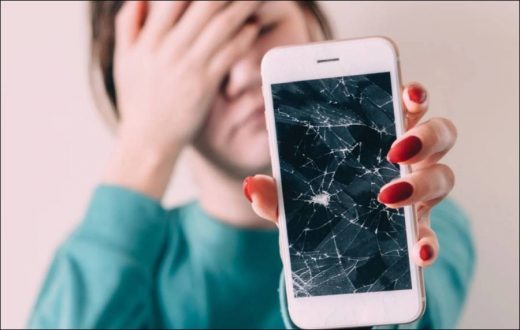The rapidly developing Internet around the world has begun to include psychological illnesses and problems in our lives. Especially in the last decade, the number of users has increased in most countries. It has become an integral part of our lives with easier access. Social pathologists, psychologists, and education professionals are aware of the potential negative effects of overuse and the associated physical and psychological problems.
People who use the Internet to affect their lives, and who are online more than 38 hours a week in general, are considered to have Internet addiction. So, how many hours do you use? Do you know about other health problems? Here are 5 psychological diseases that online life pushes us…
Ghost bell syndrome. Internet and mental illness relationship
The meaning of “ghost bell syndrome” is; You hear the phone ringing, you put your hand in your pocket, but your phone doesn’t actually ring. In fact, let’s go a little further, sometimes your phone is not even in your pocket or bag. This is called “ghost bell syndrome”.
Author of iDisorder, Dr. According to Larry Rosen, 70 percent of people who consider themselves heavy mobile users reported experiencing ghost buzzing in their pockets. It’s all due to wrong reaction mechanisms in our brains. “We probably feel a slight tingling in our pocket,” Rosen said. A few decades ago, we assumed it was a mild itch and scratched it.” said.
He continues, “But now we have built our social world to depend on this little box in our pocket. Therefore, whenever we feel any tingling in our legs, we get a burst of neurotransmitters from our brain that will either cause anxiety or pleasure and get us moving.”
I can’t live without a phone! What is nomophobia?
Worry about not being able to access one’s mobile device. The term “nomophobia” is an abbreviation for “no mobile phobia”. Have you experienced that dreadful disconnection feeling when your phone is broken or there is no power outlet around?
Nomophobia represents the marked increase in anxiety some people feel when they are away from their phones. While phone addiction may sound like an insignificant problem, the disorder can have very serious negative effects on people’s lives.
So much so that this situation has found its way into the latest edition of the US Psychiatric Association’s Diagnostic and Statistical Manual of Mental Disorders (DSM-5). A special Nomophobia treatment program has even started at the Morningside Recovery Center in California.
Dr. Rosen said: “We are all conditioned to be alert to notifications from our phones. In a way, we are like Pavlov’s dogs. You see people pulling out their phones and doing it again two minutes later, even though nothing happened. This is driven by reflex action as well as concern to make sure we don’t miss anything. It’s all part of the FOMO (Fear of Losing) response.”
Feeling nauseous when looking at the screen: What is cyber sickness?
Some people experience disorientation and dizziness when interacting with certain digital environments. For example, in iOS 7 (2013), some tweaks caused people to experience frequent dizziness and nausea. The effect of iOS 7 on people has become an example of cyber disease.
As soon as the version of OS 7 was released to iPhone and iPad users, Apple support forums were flooded with complaints of dizziness and nausea after using the new interface. Coming to the reason, it’s largely due to Apple’s use of the parallax effect, which makes the icons and home screen appear as if they are moving in a three-dimensional world under the display glass.
Cyberchondria: Disease search on internet
In fact, I’m sure many of us do. I confess, me too! “Cyberchondria” is to find a disease by doing research on the Internet or to see the diseases you read about in yourself.
The human body is a place full of surprises that cause mysterious aches, swellings and aches as we control it. Most of the time we find that these minor abnormalities are nothing serious. But the Internet’s vast archive of medical literature lets our imaginations run wild with all kinds of nightmarish medical scenarios.
I have a headache. Probably no serious reason. I should also look on the Internet, he can find the reason. Yes, there is definitely a tumor. This kind of thinking takes place in the minds of patients with cyberchondria. It searches for the worst possible results. In 2008, Microsoft did a research on this subject. Accordingly, he found that search engine-assisted self-diagnosis often resulted in the searcher getting the worst possible result.
Google effect: Less information in our own memory
Researchers briefly explain the Google effect as follows: The human mind’s tendency to retain less information because it knows all the answers are just a few clicks away. In other words, thanks to the Internet, we can easily access almost all the information that civilization has accumulated since the early ages. And this is changing the way our brain works.
Research, also called the “Google Effect”, has shown that unlimited access to information causes our brains to retain less information. Yes, we get lazy. In our minds, “I don’t need to memorize this. Because I can Google it later.” has an idea.
Visits: 70





